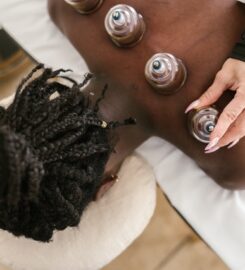
Zen Specialist Nova Jelutong
Chiropractor in Jelutong, Malaysia
Traditional Medicine
Traditional medicine refers to health practices, approaches, knowledge, and beliefs incorporating plant, animal, and mineral-based medicines, spiritual therapies, manual techniques, and exercises, applied singularly or in combination to treat, diagnose and prevent illnesses or maintain well-being.
Traditional Medical Doctor
Traditional doctors are healthcare professionals who are associated with conventional medicine. They have a degree in medicine, and they may specialize in a particular field. These are your pediatricians, cardiologists, and orthopedists.
They are trained to diagnose and treat a range of conditions. Treatments may include acupuncture, herbal medicine, remedial massage, exercise and breathing therapy, and diet and lifestyle advice.
Traditional Alternative Medicine May Include:
-Acupuncture.
-Ayurveda.
-Homeopathy.
-Naturopathy.
-Chinese or Oriental medicine.
Types of Complementary and Alternative Medicine
-Alternative medical systems,
-Mind-body interventions,
-Biologically based treatments,
-Manipulative and body-based methods, and.
-Energy therapies.
Acupuncture
A key component of traditional Chinese medicine, acupuncture is most commonly used to treat pain. Increasingly, it is being used for overall wellness, including stress management.
Types and Styles of Acupuncture
-Traditional Chinese Acupuncture.
-Japanese Style Acupuncture.
-Korean Acupuncture.
-Auricular Acupuncture.
-Laser Acupuncture.
-Teishein.
-Acupressure.
Acupuncture is used mainly to relieve discomfort associated with a variety of diseases and conditions, including:
-Chemotherapy-induced and postoperative nausea and vomiting.
-Dental pain.
-Headaches, including tension headaches and migraines.
-Labor pain.
-Low back pain.
-Neck pain.
-Osteoarthritis.
-Menstrual cramps.
-Respiratory disorders, such as allergic rhinitis
Choosing a Practitioner
If you’re considering acupuncture, take the same steps you would choose a doctor:
-Ask people you trust for recommendations.
-Check the practitioner’s training and credentials. Most states require that nonphysician acupuncturists pass an exam conducted by the National Certification Commission for Acupuncture and Oriental Medicine.
-Interview the practitioner. Ask what’s involved in the treatment, how likely it is to help your condition, and how much it will cost.
-Find out whether your insurance covers the treatment.





